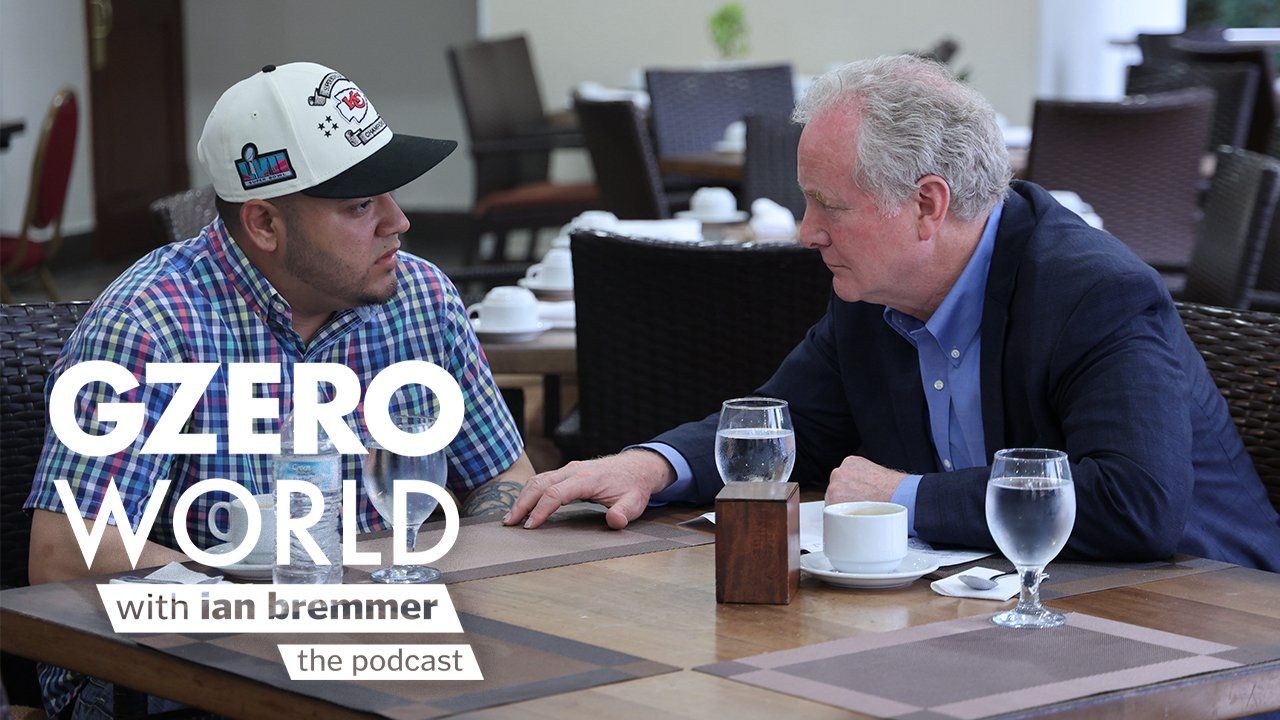GZERO World with Ian Bremmer Podcast
May 10, 2025
Listen: In the latest episode of the GZERO World podcast, Ian Bremmer sits down with Democratic Senator Chris Van Hollen to unpack what he calls a constitutional crisis unfolding under the Trump administration. At the center of the conversation is the case of Kilmar Abrego Garcia, a Maryland father of three who was wrongfully deported to El Salvador and remains imprisoned in a maximum-security facility known for human rights abuses. Van Hollen recently traveled to El Salvador to visit Abrego Garcia and pressure local authorities, telling Bremmer, “I asked [them] whether or not El Salvador had any independent basis for holding him. His answer was, ‘No… the Trump administration is paying us money to do so.’”
The conversation also turns to broader concerns about America’s global posture. Van Hollen argues the administration has gutted the State Department and abandoned U.S. leadership abroad: “What we are witnessing is America in retreat. Our adversaries, like China, are all too happy to fill the vacuum.” He critiques Trump’s sweeping tariff policies as chaotic and harmful to small businesses, saying they’re driven more by political theater than economic strategy.
With due process under threat and American institutions under pressure, Van Hollen calls on Democrats to fight back not just with opposition, but with an alternative vision: “We should point out the betrayal, but also present a plan that helps working people—the people Trump claims to stand for.”
Subscribe to the GZERO World Podcast on Apple Podcasts, Spotify, Stitcher, or your preferred podcast platform, to receive new episodes as soon as they're publishedMore For You
Most Popular
Sponsored posts
Small businesses at a crossroads
Walmart sponsored posts
Walmart’s $1 billion investment is strengthening associate careers
Ukraine's President Volodymyr Zelenskiy, Finland's President Alexander Stubb, Estonia’s Prime Minister, President of the European Commission Ursula von der Leyen and other European leaders visit memorial to fallen Ukrainian defenders at the Independent Square on the fourth anniversary of Russia's full-scale invasion, in Kyiv, Ukraine February 24, 2026.
Ukrainian Presidential Press Service/Handout via REUTERS
Somewhere in the Donbas region, Ukrainian soldier Artem Bondarenko says he hasn’t slept through the night in months as he defends Eastern Ukraine.
- YouTube
In the latest episode of Vladimir Putin and Xi Jinping's hit wellness podcast This Authoritarian Life, we learn how positive communication patterns can break negative cycles in our relationships -- especially our relationships with Iran, Syria, Venezuela, and Cuba. #PUPPETREGIME
People inspect the damage at the site of an Israeli strike on Friday, in Bednayel, Bekaa valley, Lebanon, February 21, 2026.
REUTERS/Mohamed Azakir
Israel indirectly warned Lebanon that it would strike its northern neighbor hard if the Iran-backed militia group Hezbollah gets involved in any future US-Iran conflict, two Lebanese officials told Reuters.
© 2025 GZERO Media. All Rights Reserved | A Eurasia Group media company.
